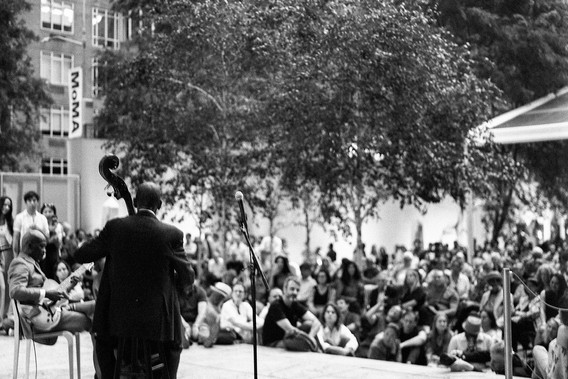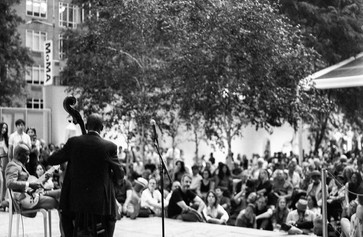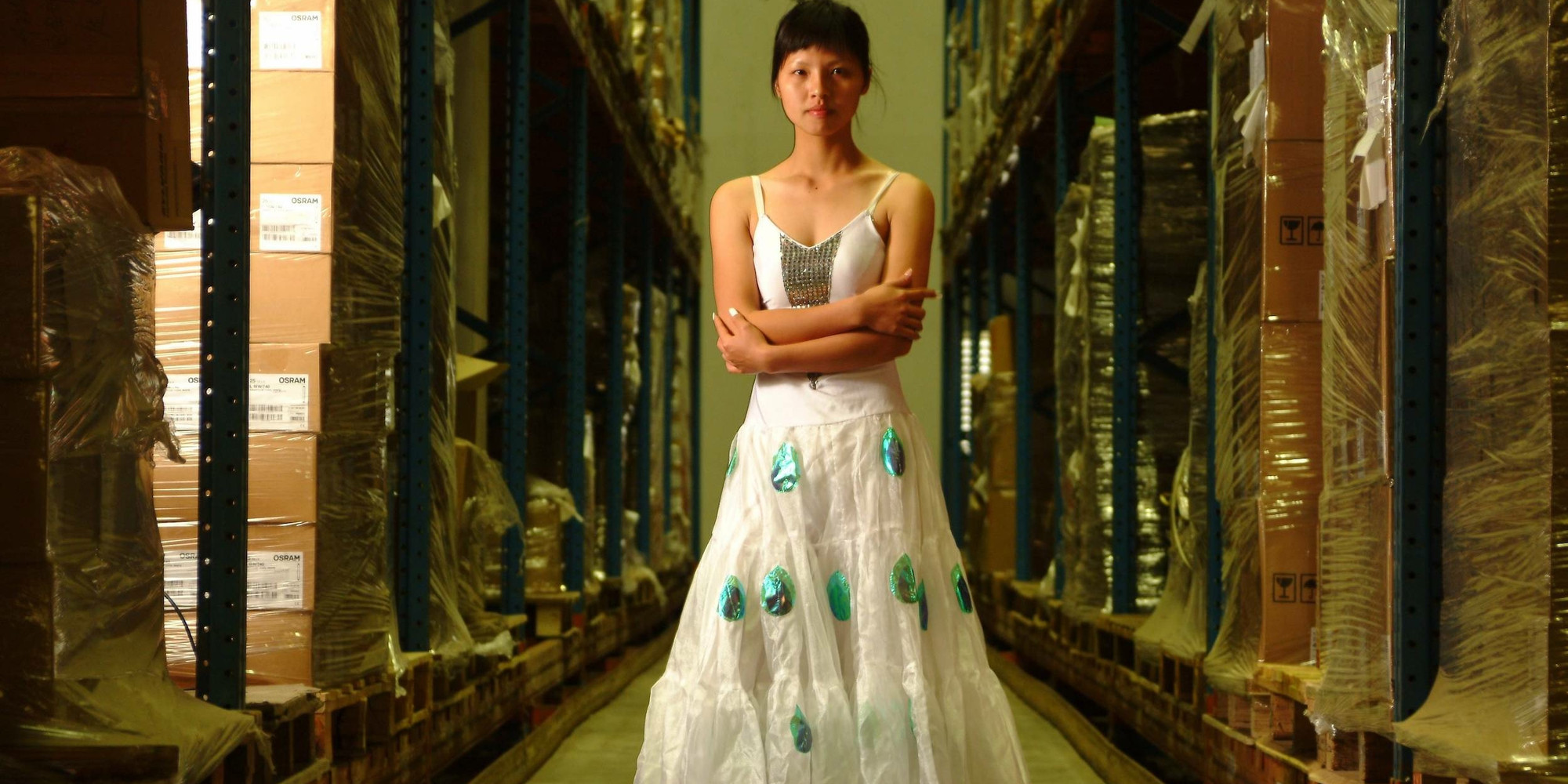
“For Cao Fei, Whose Utopia”
Poet Forrest Gander reads his poem, inspired by Cao Fei’s thought-provoking video.
Forrest Gander
Nov 2, 2021
For this year’s edition of our Poetry Project, we asked poet Ada Limón to select nine distinguished American poets to respond to artworks from the Museum’s collection. Here, Forrest Gander shares his poem inspired by Cao Fei’s Whose Utopia.
Excerpt from Cao Fei. Whose Utopia. 2006. © 2021 Cao Fei. Courtesy of the artist and Vitamin Creative Space
For Cao Fei, Whose Utopia
Behind it all, the ratcheting arterial
pulse of machinery. My pupils are fixed
in place, as though by needles,
on the task at hand. At hand,
synovials of tungsten filament, contact wire,
gas-filled glass bulbs. An orchestral
clinking. Until, as though called forth
from my collective hours of concentration,
some afterbirth of monotony,
the unpredicted enters the room like a pair
of gods sheathed in silence, miracles
of precarity rupturing
the membrane between habit and
dream. He with his swiveling step, she
pulling back her shoulders. Their inner stillness
adds magnanimity to their motions. Uncanny, pre-
hypnotic, incomprehensible,
mustard flowers waving in a charred field. How
can I look away? My eyes have no lids. If
I grant them just a minute of my attention, I wonder
if I could emerge from what has shattered inside me
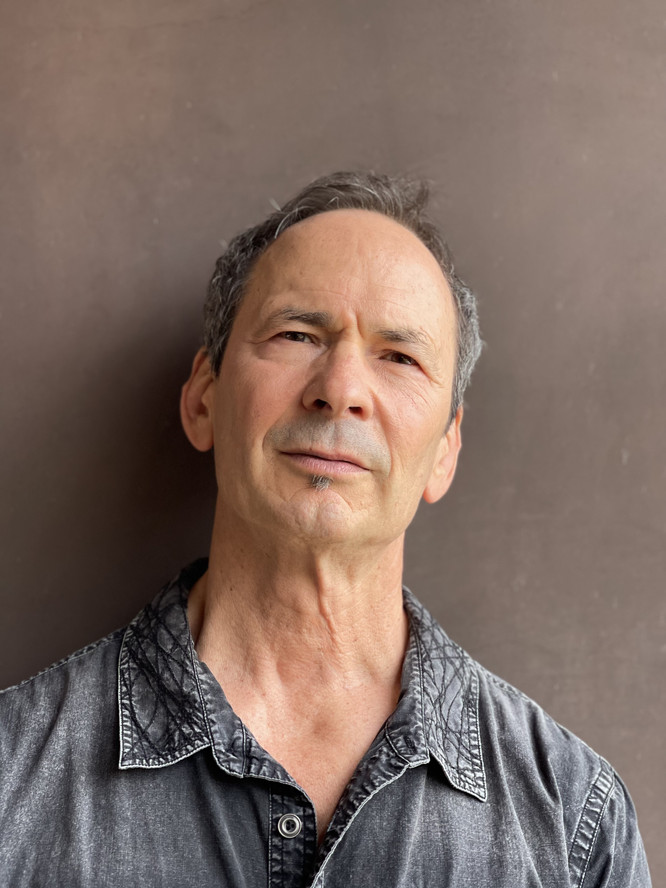
Forrest Gander
1. Why did you choose this work of art?
On my way into the museum to find the artwork I had researched and selected for my poem accompaniment, I passed through the room where Cao Fei’s film was playing, and I stood there and then sat there for the next hour watching the film repeatedly, wiping tears from my eyes. It chose me.
2. What was your approach to writing a poem about it?
I tried to open myself completely to the rhythms, the varying moods, and the poignant impact of Cao Fei’s film, and to write something that might serve as a kind of core sample of its emotional depth.
Forrest Gander, a writer and translator with degrees in geology and literature, was born in the Mojave Desert and lives in northern California. His books, often concerned with ecology, include Be With, winner of the 2019 Pulitzer Prize, the novel The Trace, and Twice Alive, just out from New Directions. Gander’s translations and co-translations include Alice Iris Red Horse by Gozo Yoshimasu, Spectacle & Pigsty by Kiwao Nomura, and Then Come Back: The Lost Neruda Poems. He has received grants from the Library of Congress and the Guggenheim, Howard, Whiting, and United States Artists foundations.
Related articles
-
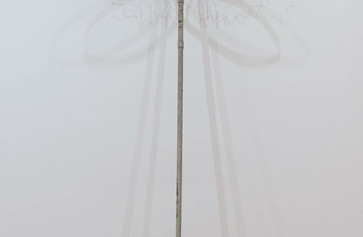
Poetry Project
“Benediction”
Poet Camille T. Dungy reads her poem, inspired by David Hammons’s enigmatic sculpture.
Camille T. Dungy
Oct 26, 2021
-
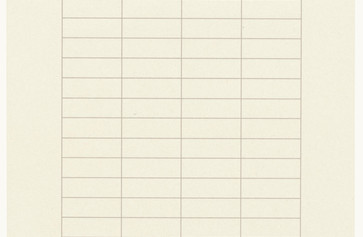
Poetry Project
“On a Clear Day”
Poet Victoria Chang reads her poem, inspired by one of the screenprints in Agnes Martin’s series of the same name.
Victoria Chang
Oct 19, 2021
